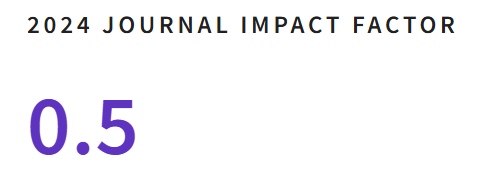Aproximación al concepto de Inteligencia Gastronómica
DOI:
https://doi.org/10.35588/q4jvaq98Palabras clave:
inteligencia, gastronomía, Inteligencia Gastronómica, diplomacia gastronómicaResumen
La hibridación entre inteligencia y gastronomía invita a revisar la conceptualización de ambas nociones e identificar, mediante una aproximación teórica y conceptual, qué procesos conlleva esta dupla. Se trata de una construcción novedosa a partir de dos términos de largo recorrido mediante una metodología de investigación cualitativa y cuantitativa, haciendo una profunda revisión documental histórica y sectorial, además de un cuestionario y entrevistas. Todo ello nos ha permitido validar un nuevo concepto, denominado “Inteligencia Gastronómica”, como la capacidad de análisis territorial (histórico, antropológico, cultural, ambiental, social y económico) y de desarrollo de pensamiento sistémico, estratégico y dialógico para producir innovaciones sociales, tecnológicas y biotecnológicas, en el ámbito de la gastronomía y las artes culinarias. La relevancia del tema estriba en la necesidad de significaciones que se transfieran a modelos de trabajo promotores del desarrollo sostenible y del respeto cultural en los territorios, en los que la combinación de tecnología e inteligencia humana resulta imprescindible para producir innovaciones sociales a través de la gastronomía.
Descargas
Referencias
Arsuaga, J.L. (2003). Los aborígenes. La alimentación en la evolución humana. RBA Libros.
Bahls, Á., Wendhausen Krause, R. y da Silva Añaña, E. (2019). Comprensión de los conceptos de culinaria y gastronomía: Una revisión y propuesta conceptual. Estudios y Perspectivas en Turismo, 28(2), 312-330.
Brillant-Savarin, J.A. (2014). Fisiología del gusto. Obelisco.
Calvo Bruzos, S.C. (2004). Los hábitos alimentarios: Origen, evolución y posibilidades educativas. A distancia, 2, 4-8.
Cervantes, M. de (2005). Don Quijote de la Mancha. Espasa.
Columela, L.J.M. (1824). Los doce libros de la agricultura (Trad. J.M. Álvarez de Sotomayor y Rubio). Fondo de Biblioteca Virtual Miguel de Cervantes.
Contreras, J. (2007). Alimentación y religión. Revista Humanitas Humanidades Médicas, 16, 13-31.
Harmand, S. et al. (2015). 3.3-Million-Year-Old Stone Tools from Lomekwi 3, West Turkana, Kenya. Nature, 521, 310-315. DOI https://doi.org/10.1038/nature14464
Hereter, R. (2021). Historia de las especias. Almuzara.
Hernández, R. y Mendoza, C.P. (2018). Metodología de la investigación: Las rutas cuantitativa, cualitativa y mixta. McGraw Hill.
Juárez, C. (7 de mayo de 2020). Evolución de nuestra comida. The Food Tech. https://thefoodtech.com/nutricion-y-salud/evolucion-de-nuestra-comida/
Lacoste, P., Castro, A. y Yuri, J.A. (2012). Construcción de la cultura de apreciación de la fruta. Aporte de Las mil y una noches. Varia Historia, 28(48), 647-668.
Machado, L.A. (1975). La revolución de la inteligencia. Seix Barral.
Maturana, H. y Pörksen, B. (2010). Del ser al hacer: Los orígenes de la biología del conocer. Granica.
Mayer Heft, G. y Samuel Azran, T. (2022). Food for Thought: An Empirical Analysis of the Efficacy of Gastrodiplomacy». Food Studies: An Interdisciplinary Journal, 13(1), 25-40. DOI https://doi.org/10.18848/2160-1933/CGP/v13i01/25-40
McPherron, S. et al. (2010). Evidence for Stone-Tool-Assisted Consumption of Animal Tissues before 3.39 Million Years Ago at Dikika, Ethiopia. Nature, 466, 857-860. DOI https://doi.org/10.1038/nature09248
Moreno, M.P. (2006). La cocina española antigua de Emilia Pardo Bazán: Dulce venganza e intencionalidad múltiple en un recetario ilustrado. La Tribuna Cadernos de Estudios da Casa, 4(4), 243-251.
Morin, E. (1997). La unidualidad del hombre. Gazeta de Antropología, 13. DOI https://doi.org/10.30827/Digibug.13575
Ritchie Carson, I.A. (1997). Comida y civilización: De cómo los gustos alimenticios han modificado la historia. Altaya.
Şahi̇n, E. (2022). A Bibliometric Overview of the International Journal of Gastronomy and Food Science: To Where Is Gastronomy Research Evolving? International Journal of Gastronomy and Food Science, 28, 100543. https://doi.org/10.1016/j.ijgfs.2022.100543
Torres Valdés, R.M. y Ordoñez García, C. (2021). Fiestas Populares de Labor, desarrollo rural sostenible y regiones saludables. RIVAR, 8(23), 293-312. DOI https://doi.org/10.35588/rivar.v8i23.4980
Descargas
Enviado
2024-02-28Publicado
Número
Sección
Licencia
Derechos de autor 2025 RIVAR

Esta obra está bajo una licencia internacional Creative Commons Atribución 4.0.









